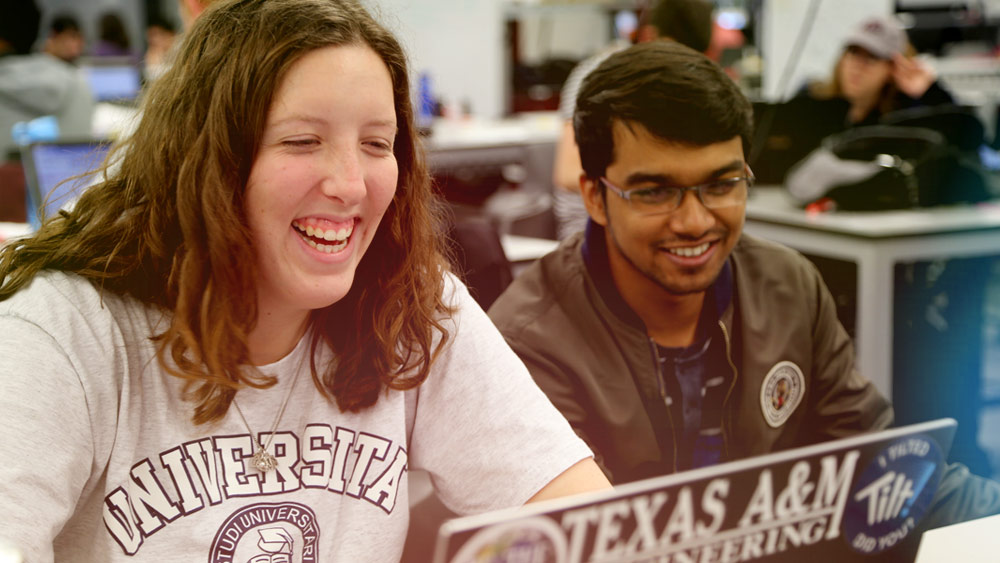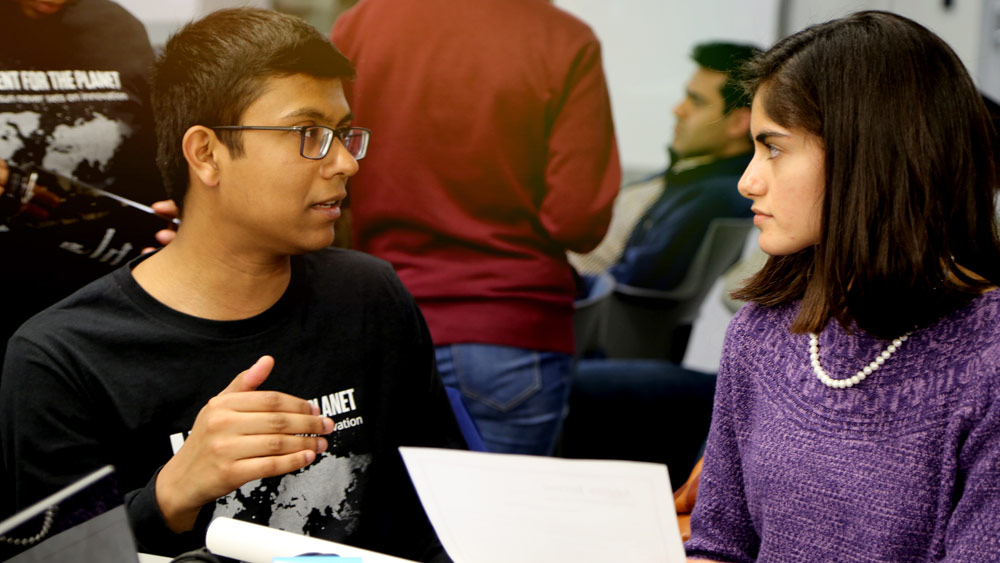For 48 hours, innovation was not bound by borders, tripped up by time zones, or influenced by politics. On Feb. 15, 25 universities across the world kicked off Invent for the Planet (
The Texas A&M winners
The first-place winner was Team Hail No with their solution to minimize hail damage to aircraft wings, operational delays, costly repairs and accidents. The team’s design was similar to an airbag that would be installed over the leading and trailing edge of the aircraft wings using nylon straps to reduce the risk of it blowing off in a storm. Team members included Umang Kantesaria, computer science and engineering; Jacob Azbell, electrical engineering; Bamidele Fadayomi, mechanical engineering; Jobin George Mathew, industrial engineering; Mazen Ali, mechanical engineering; and William Smith, manufacturing mechanical engineering technology.
“Trying to find a solution to our specific problem, or any of the problem statements, definitely makes people’s lives better in a way that we might not have seen before,” said Mathew. “That is what I’m trying to achieve. That is what I’m trying to get out of this, and that is why I’m here.”
Trying to find a solution to our specific problem, or any of the problem statements, definitely makes people’s lives better in a way that we might not have seen before. That is what I’m trying to achieve. That is what I’m trying to get out of this, and that is why I’m here.
Invent for the Planet photo gallery
Second-place winner was Team HydroWhirl with a means to help provide access to clean water. They devised a barrel system that would filter water as it is rolled across the ground. It gives the user the ability to transport more than 14 gallons of water and also filter it using a plastic barrel, rope, spout, local filter materials like gravel, sand or charcoal, and a microfilter membrane that will enhance the filtration process.
Team MAC took third place with their solution to reduce fatal motorcycle accidents. They created a blind spot monitor that notifies riders of danger using handlebar grips that vibrate.

The global perspective
The number of participating universities around the world almost doubled from last year’s pilot launch of IFTP. Texas A&M student volunteers representing nearly all of the cultures and languages from partnering universities were available to help overcome any barriers IFTP participants might face with collaboration. After the success of last year’s first and second place teams, a record number of Texas A&M students signed up with hopes to participate.
“It really made me feel good, knowing that we really weren’t just creating a solution to a problem in an isolated environment,” said Smith. “We were in contact with people who are very familiar with the problem and were kind of stumped on the solution.”
It really made me feel good, knowing that we really weren’t just creating a solution to a problem in an isolated environment. We were in contact with people who are very familiar with the problem and were kind of stumped on the solution.
Like last year, Microsoft provided each student with access to Microsoft Teams, a program with chat rooms set up for each challenge so students working on that challenge around the world could easily communicate with one another. As one team aptly pointed out during the competition, their challenge addressed equipping rural health workers with better information, technology or education. What better way to understand that situation than to collaborate with a team whose country is dealing with the issue firsthand and would be the ideal consumer for this solution?
“People have asked, ‘What’s the motivation for our students to collaborate with teams on the other side of the world. Isn’t the point to win the whole thing outright?’” said Rodney Boehm, director of the Engineering Entrepreneurship Program and creator of the U-Invent experiences. “The answer is, the motivation is to change the world and make an impact that will go beyond just their local community. Whether that means you attempt a design without collaboration or not, it’s the students’ decision. But we hope they see what insights students from another environment can offer, and use it.”

The innovation continues
Throughout the event, students were mentored by faculty, industry members, students and each other. They were reminded that, win or lose, if they have a passion to pursue their design beyond the competition, Texas A&M’s Engineering Entrepreneurship Program is available to help them continue on that path. There have been many success stories to come out of the entrepreneurship incubator program.
“The involvement with the students was incredibly rewarding for me,” said Ron Pekny, a participating mentor who just retired after 28 years as an American Airlines engineer. “To be able to interact and see the difference that some of my suggestions made to their progress from Friday to Sunday … these guys went beyond their need statement. I truly believe it is feasible. I’m excited to get a copy of the presentation and show it to my American Airlines colleagues. As a judgment on my part, it truly is a viable concept.”
In this first IFTP event of the year, students competed locally first, judged against their university peers, to determine the top three teams. Of those, the first-place team from each university will go head-to-head in the second round of virtual judging in March to determine the top five teams worldwide. The overall global winner will be chosen at a conference held at Texas A&M on April 23. Global winners will be awarded monetary prizes of $3,000, $2,000 and $1,000, respectively.
This year’s IFTP was supported by The National Academy of Engineering, AutoDesk, AirBus, USAID and VentureWell.
For more information on Invent for the Planet, visit our website.